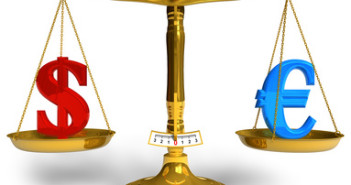EUR/USD moved up and even peeked above resistance, but with the peek came the peak and the pair turns down. It sticks to the same old range, trading below the close on Friday and is unable to break higher.
Yellen was quite cautious and the Greek crisis has been sidelined for now. So why can’t EUR/USD break higher out of range? Here are 3 answers.
1) What Yellen said
The initial reaction was a jump in the dollar, on the sense that a rate hike is imminent, and the next move was down, on a better understanding of what she said: a removal of forward guidance does not imply an immediate rate hike.
The dollar was weaker across the board and the euro gained against it as well. But what did she actually say? In general, everything is data dependent and she also expressed caution on jobs and inflation. Yellen was basically being Yellen – dovish as we have always known her.
But perhaps there is another explanation: perhaps she was preparing us for a removal of forward guidance in March: no more patience next month, and a potential for a rate hike – perhaps not imminently in April, but June is still on the agenda.
June was the earliest possible date anyway, so perhaps her words are not so dovish?
We will get a better notion with the upcoming jobs report next Friday. If it’s another great one, June is certainly on the agenda. If not, it’s September, which is not that far away.
2) Greece: Next crisis is not too far away
The Eurogroup approved the Greek list of reforms. That was excellent news for the Athens stock market. But now, it’s time for action and not only talk.
How much money has left Greek banks so far? Will SYRIZA hold together after the concessions? Will they ramp up tax collections? And basically, this is a four month extension, and this means that the next round is not that far off.
3)Â The Draghi Drag
ECB president Mario Draghi speaks later today, 16:30 GMT, in the European parliament and this is a great reminder of the stance of the central bank: they are about to launch a massive QE program.
And why? Inflation remains low and it’s not only oil prices. Core inflation remains low, and so does demand. Germany just had a 5 year auction that was negative: that means that investors lined up to pay the German government to take their money for five years.
This is a reflection of the upcoming QE but also of deflation. Wait, does it really matter? US bonds yields, even after Yellen, remain much more attractive than most European ones.
All in all, EUR/USD has only momentary reasons to rise, but the general direction remains down.
More: EUR Looking Heavy With General Bearish Price Action – RBS
In this week’s podcast, we cover Questions for traders, State of Fed, Greek crisis, oil, gold and GBP
Subscribe to our iTunes page



